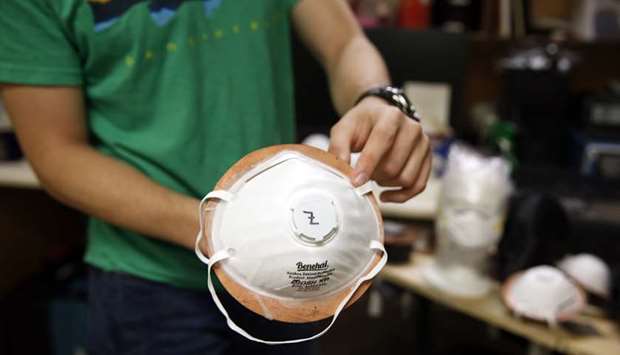Recommending that people wear protective face masks has prevented tens of thousands of coronavirus infections, according to researchers who assessed the effects of the measure in New York, Italy and Wuhan.
Mask-wearing matters because airborne transmission is the dominant route for the spread of Covid-19, researchers from the universities of Texas and California wrote in the article published in the Proceedings of the National Academy of Sciences.
The researchers analysed the timing of mitigation measures in three epicentres: Italy, New York, and the Chinese city of Wuhan, where the outbreak originated.
They shaped the study around when officials called on the public to wear masks, and compared this with infection levels before and after the guidance was issued.
In China, people were told to wear masks at the same time as they were instructed to follow other recommendations including hand-washing and keeping a distance from other people.
In New York and Italy, these recommendations were staggered, with the recommendation that people wear masks coming after other guidelines.
The scientists found that in Italy, telling people to wear face masks prevented more than 78,000 infections between April 6 and May 9.
In New York, the measure stopped more than 66,000 cases from April 17 to May 9, the scientists wrote.
“Our analysis reveals that the difference with and without mandated face covering represents the determinant in shaping the trends of the pandemic worldwide,” wrote the scientists, led by Renyi Zhang of Texas A&M University.
Mitigation measures such as social distancing, quarantine and isolation are insufficient alone to protect the public, the scientists said.

